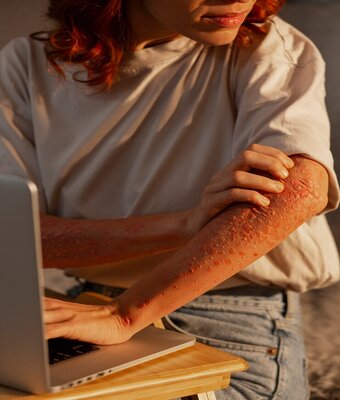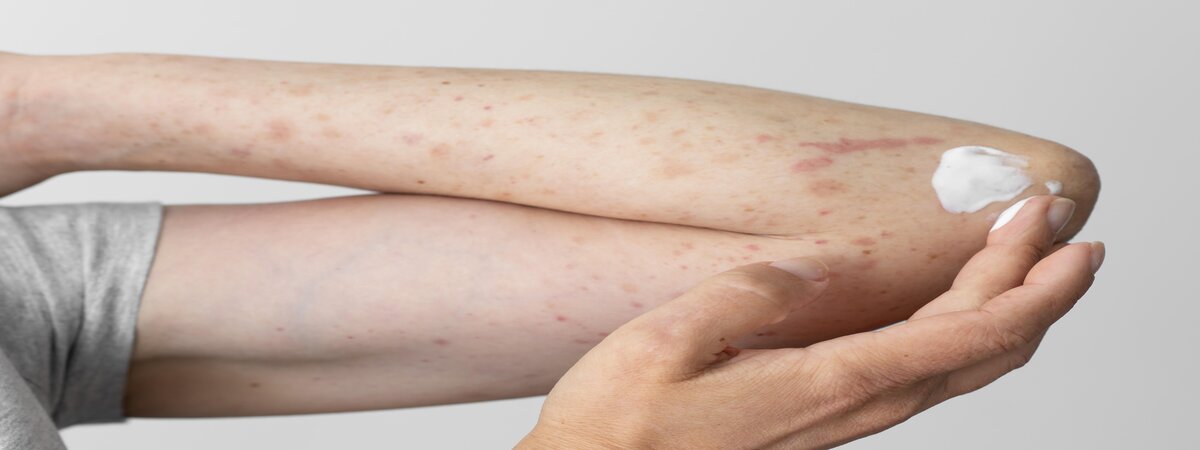
Exploring the Contagious Nature of Skin Diseases
The contagiousness of a skin disease hinges on its potential transmission through contact. Various infectious agents—viruses, bacteria, fungi, protozoa, and parasites—are responsible for making a skin disease contagious. These agents move from one host to another, replicating within the new host and facilitating the disease’s spread.
Distinguishing Contagious Skin Diseases
Impetigo:
This bacterial infection leads to sores, blisters, and scabs, primarily around the mouth and nose. It’s easily spread through direct contact and is prevalent in small children. Treatment involves antibiotics administered by a dermatologist.
Molluscum Contagiosum:
Molluscum Contagiosum, characterized by clusters of painless, itchy spots, predominantly affects children. Dermatologists offer diverse treatment options such as gels, creams, cryotherapy, or minor surgical procedures for effective management.
Scabies:
Scabies, triggered by mites laying eggs in the skin, induces severe itchiness, necessitating immediate treatment with specialized creams prescribed by Dermatologists for swift relief and resolution.
Ringworm:
Ringworm, a fungal infection despite its name, manifests as a red or silver rash. Dermatologists administer targeted antifungal medications, effectively combating and resolving this condition for optimal skin health.
Fungal Infections:
Fungal Infections encompass a variety of skin conditions like athlete’s foot and yeast infections. Dermatologists employ specialized antifungal treatments, tailored to each infection, ensuring effective and comprehensive resolution for improved skin health.
Non-Contagious Skin Conditions Requiring Attention
Psoriasis:
Psoriasis, a chronic, non-contagious condition, manifests as red patches with silvery scales. Dermatologists tailor treatments, such as topical creams or phototherapy, based on triggers and specific psoriasis types for effective management.
Hives:
Hives, while non-contagious, bring considerable discomfort. Dermatologists oversee the use of antihistamines, providing personalized guidance for effective relief and comprehensive management of this uncomfortable skin condition.
Eczema:
Eczema, marked by dry, itchy patches, commonly affects children. Dermatologists provide customized treatments, including oral medication, ensuring comprehensive relief and management for individuals with this condition.
Expert Evaluation by a Consultant Dermatologist
Identifying the contagious nature of a skin condition demands expertise, given the similarity in symptoms across various conditions, leading to potential confusion. A Consultant Dermatologist, renowned for their specialized knowledge, is the most equipped professional to accurately diagnose and treat such conditions. Seeking guidance directly from our dermatologists in London or through a referral from a General Practitioner guarantees precise identification and appropriate treatment for your skin condition, including the esteemed services of the London Dermatology Clinic.
FAQ
Can lifestyle changes impact skin conditions?
Yes, certain lifestyle adjustments can significantly affect skin conditions. For instance, managing stress, adopting a balanced diet, and using gentle skincare products can alleviate symptoms of various skin conditions. However, it’s advisable to consult a dermatologist for personalized guidance on lifestyle modifications.
Can skin conditions affect mental health?
Skin conditions can influence mental health due to discomfort, visibility, and social implications. Seeking dermatological help is crucial for holistic well-being.
Are there preventive measures for contagious skin diseases?
Maintaining good hygiene, avoiding direct skin contact with infected individuals, and refraining from sharing personal items can help prevent the spread of contagious skin diseases.
How long does it take to diagnose a skin condition?
The time for diagnosis varies depending on the condition. Some may require visual inspection, while others might need further tests, potentially taking several visits for a conclusive diagnosis.
Can over-the-counter remedies cure skin diseases effectively?
While some over-the-counter treatments provide relief, many skin diseases require specific, prescribed medications or treatments for complete resolution. It’s advisable to consult a dermatologist for accurate diagnosis and treatment.
Can climate or environmental factors worsen skin conditions?
Yes, environmental factors such as climate, pollution, or allergens can exacerbate certain skin conditions. Dermatologists can recommend adjustments or treatments to manage these effects.


